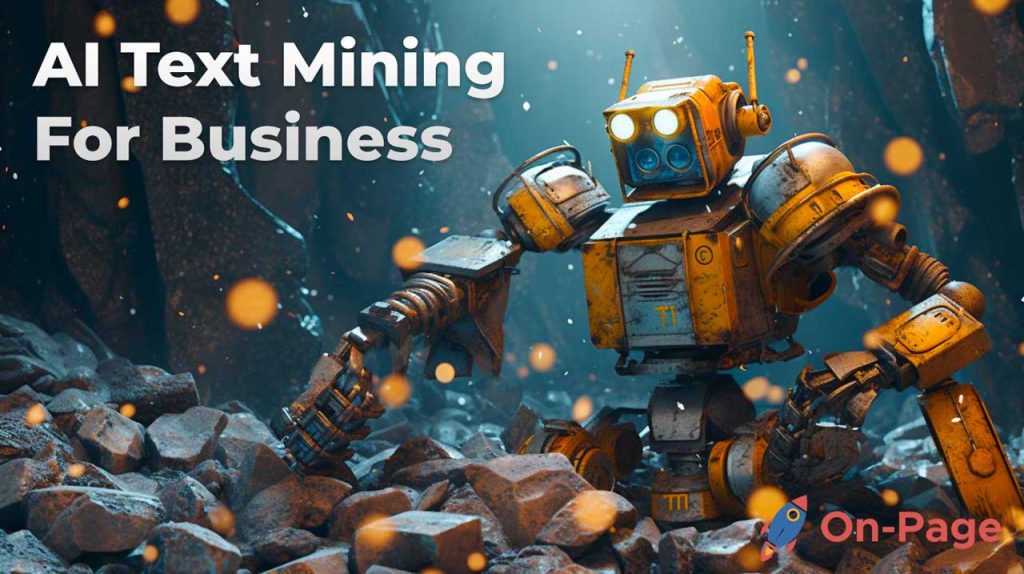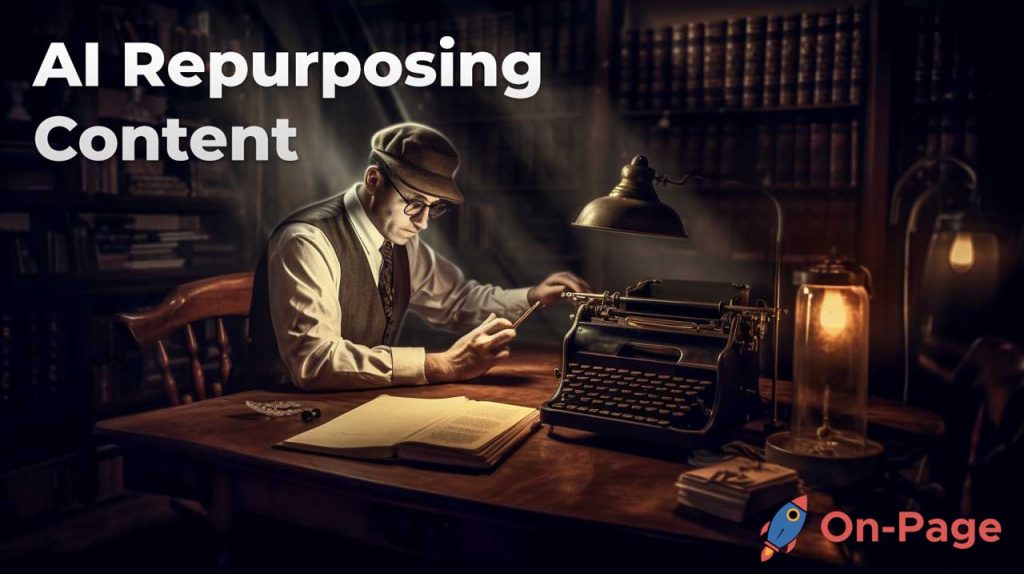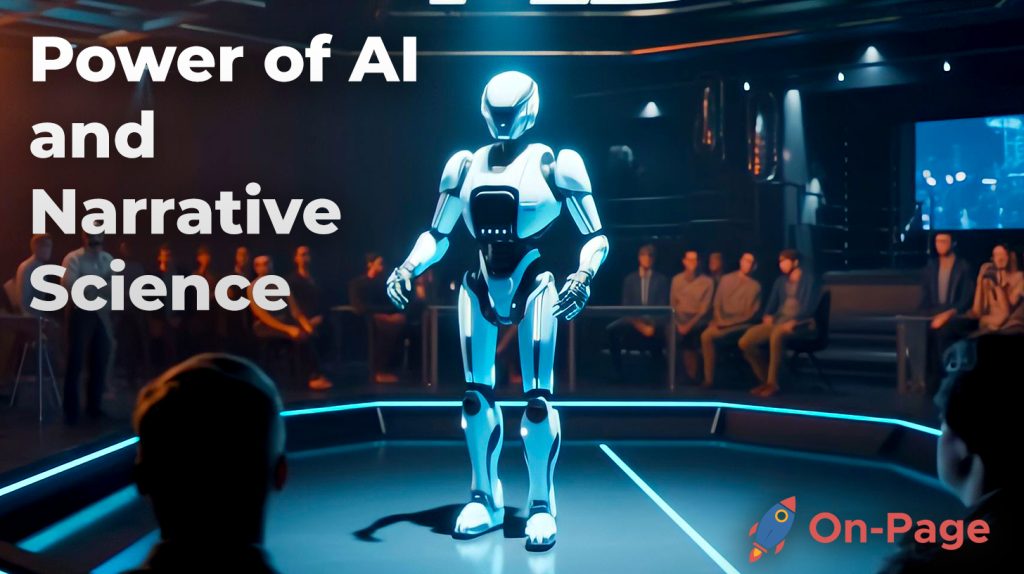Imagine a world where the click of a button generates engaging, error-free content, intelligently crafted to rank higher on search engines – and all of this without even breaking a sweat. Well with On-Page.ai, strap in because we’re taking a deep dive into the realm of AI-driven writing and exploring the staggering potential it holds for SEO optimization. Get ready to be blown away as we delve into the transformative fusion of AI and content creation, destined to revolutionize how you optimize your digital presence!
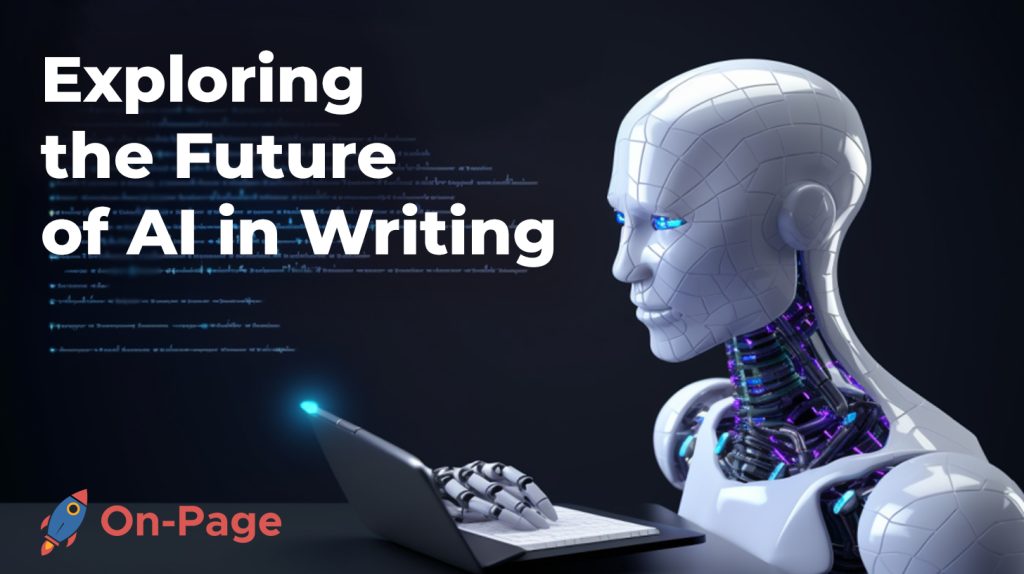
The future of AI in writing is exciting and constantly evolving. By using machine learning, natural language processing, and generative adversarial networks (GANs), AI can assist in content creation from initial drafts to final edits. Though AI technology is improving and has become more prevalent in the publishing industry, it is not likely to replace human writers entirely because it cannot replicate the creative imagination and emotional depth that human writers bring. Rather, AI tools will assist writers with tasks like research, editing, formatting, and proofreading so they can produce work faster and with higher accuracy. As a result, writers may have more time to focus on creativity and high-level content while still benefitting from the speed and convenience that AI provides. Ultimately, it is expected that AI will play a significant role in shaping the future of writing by improving its quality and making it more accessible to people around the world.
AI Technology in Writing: An Overview
Artificial Intelligence (AI) has penetrated virtually all industries, and the writing industry is no exception. In recent years, writers have started to incorporate AI into their content creation process to improve efficiency and accuracy. Writing has evolved beyond traditional pen and paper or typing up a document on a computer. Nowadays, with the help of technologies like Artificial intelligence, the writing process can be a lot more streamlined and smarter.
A good example of how AI technology is being integrated into the writing world is through the use of AI-powered writing assistants like Grammarly. The tool uses Natural Language Processing (NLP) techniques to check written content for errors in grammar, style, punctuation, and more. Also, it makes suggestions to improve readability and ensure that the text is in line with the intended target audience.
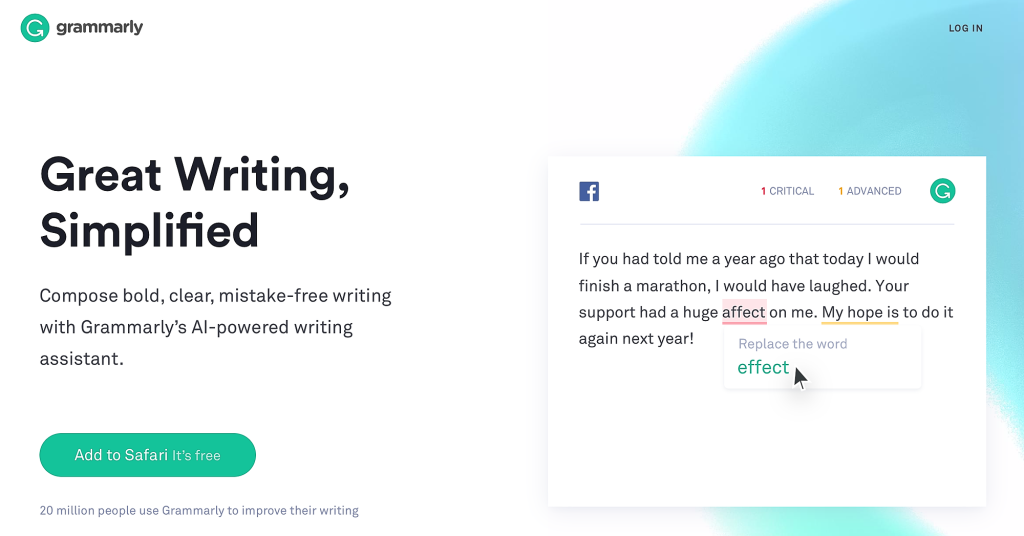
AI tools are built using sophisticated algorithms that help them learn from data fed into it, enabling them to write more cohesively and deliver better content quality. When used correctly, these tools can add value in several areas of writing such as improved productivity and efficiency.
While some have argued that AI will replace human writers ultimately, others believe that it will only improve their abilities without taking their jobs away completely. Nevertheless, we cannot ignore the fact that there’s a tremendous opportunity for humans to work alongside machines to create top-quality content.
However, before discussing this further, let’s take a closer look at what NLP means and how it works.
- Artificial Intelligence (AI) is being incorporated into the writing industry to improve efficiency and accuracy, allowing writers to streamline their writing processes. AI-powered writing assistants like Grammarly are an excellent example of how AI technology is being integrated into the writing world. These tools use Natural Language Processing (NLP) techniques to check written content for errors in grammar, style, punctuation, and more, making suggestions to improve readability and ensure that the text is suitable for the intended audience. AI tools like On-Page Content Editor can add value in several areas of writing, leading to improved productivity and efficiency. Although some have argued that AI will replace human writers eventually, others believe that it will only enhance their abilities without taking away their jobs entirely. There is a tremendous opportunity for humans to work alongside machines to create top-quality content. Therefore, NLP systems and how they work are essential components in discussing these advancements’ implications on the writing industry’s future.
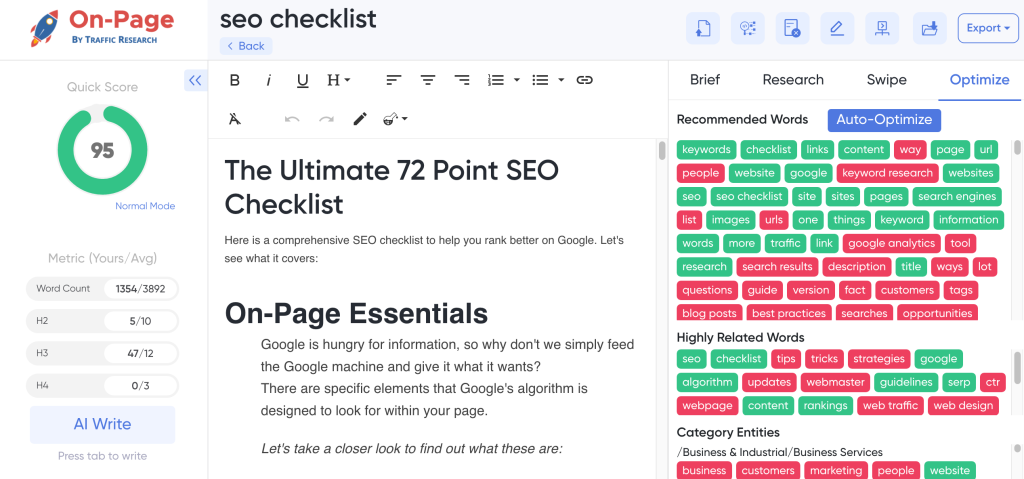
Natural Language Processing (NLP) Explained
Natural Language Processing (NLP) is an area of artificial intelligence that deals with understanding human language by designing algorithms capable of detecting patterns from written or spoken text. It involves programming computers to analyze different aspects of language such as grammar, syntax, intent analysis, sentiment analysis and draws insights from it accordingly.
By analyzing language, NLP tools like On-Page.ai offering can help automate various aspects of writing such as finding suitable synonyms that suit the context, repurposing blog content for e-books, conducting research and formulating topic ideas, summarizing long articles or manuscripts into shorter forms, and even creating full-length blog articles from scratch using a set of preset parameters.
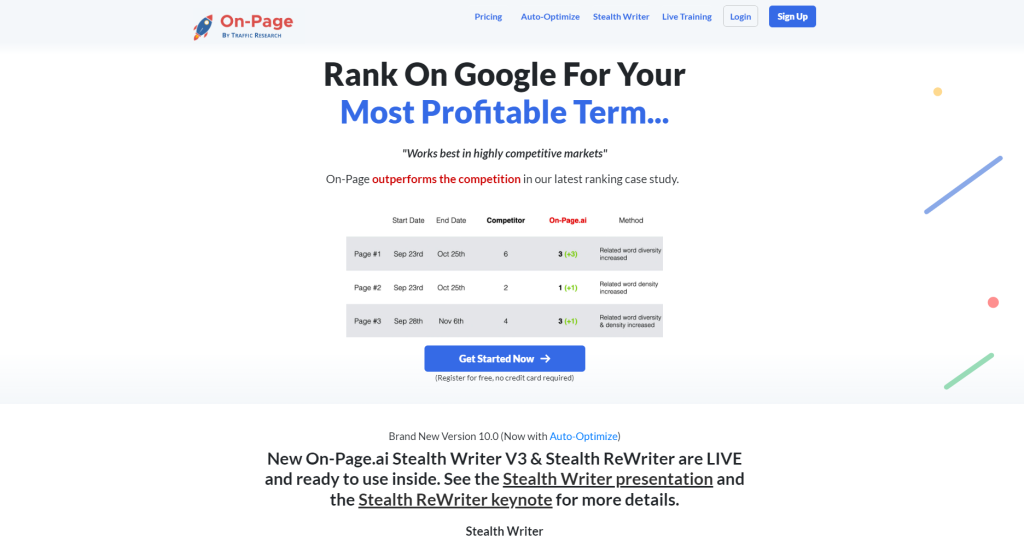
One of the ways in which AI is being used extensively today is through chatbots. Chatbots use NLP to understand human queries and execute actions based on it. They help to provide quick customer service support, personalized recommendations and automated communication within specific workflows (e.g., HR processes).
NLP can be seen as the bridge that connects humans and machines through language. Without it, we wouldn’t be able to converse with Siri, Google Assistant, or other similar applications that make our daily lives easier.
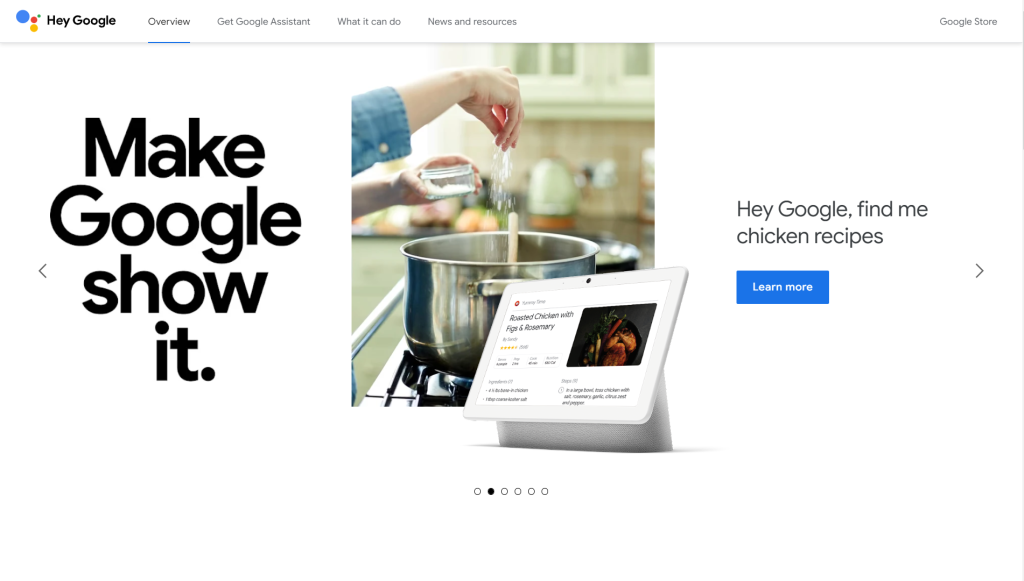
However, there are ethical concerns when designing AI tools involved in writing content. For instance, should content generated by an AI tool have a disclaimer indicating that it wasn’t created by humans or identify itself as such? Would this lead to skeptical readers questioning the authenticity of said content?
The next section will explore how AI is transforming the process of writing.
- According to a report by McKinsey, around 20% of jobs in creative fields like writing could experience automation-driven changes by 2030, suggesting new prospects for AI-assisted content creation.
- A study published in the journal “Computational Intelligence” predicted that by 2025, natural language processing (NLP) technology could achieve or exceed human-level performance in novel-writing tasks.
- Market Research Engine has projected that the global AI writing assistant software market size will reach $4.12 billion by 2026, with a compound annual growth rate (CAGR) of over 13%, indicating the growing demand for AI’s role in content creation and editing.
Exploring the Writing Process Transformation

AI technology has been improving writing processes in many areas. From drafting to editing, AI-powered tools have made it easier and more efficient for writers to create and refine their content. One of the most significant impacts of AI on writing is its ability to transform the writing process itself.
AI can assist with research by using data analysis to help generate ideas and even organize information into a logical structure that makes sense for the reader. This feature saves writers hours of searching through sources to find relevant material and ensures they provide their audience with accurate and reliable information.
Additionally, natural language processing (NLP) helps writers write better by analyzing the text’s structure and grammar. It can also provide style suggestions, such as rewriting overly complex or simplified paragraphs. The tool suggests alternative words or phrases that better reflect the intended message or sentiment, ultimately creating smoother, more engaging content.
Even beyond refining writing mechanics, AI holds enormous potential for improving how companies write across all industries. With its ability to intelligently sift through immense data sets, AI systems can quickly identify market trends and theme patterns, highlighting topics that should be covered in written materials that will appeal to specific demographics.
This highly focused approach allows firms to respond quicker to consumers’ needs with targeted messaging that resonates with their audience. As these developments continue through advanced machine learning techniques, businesses can become bolder in their assumptions regarding what types of audiences they’re targeting and how best to communicate with them over time.
Automation and Efficiency Improvements
One of the most significant benefits of adopting AI into writing workflows is the automation it provides. Automated proofreading efficiently helps writers detect errors quickly and effectively correct them before publishing.
Companies utilizing AI-powered text editors experience faster turnaround times in creating digital marketing materials than those who do not use such technology for these tasks. The result is a significant reduction in the time required for teams of human writers to complete routine writing assignments, which translates into substantial cost savings.
However, critics argue that relying on AI systems for editing may compromise the quality of writing in favor of expediency. Human editors often apply variations in tone and style when reviewing written work, something that an AI tool is likely to struggle with presently.
Therefore many experts recommend using AI automation in combination with human editorial review. In this arrangement, automated systems perform most of the mechanical legwork, passing drafts to humans for final quality control before publication. The result is content that combines efficiency and speed with a more personalized human touch.
By enabling precise targeting and speedy content production, AI applications promise vast potential for writers and businesses alike. As these technologies continue to develop and improve, we can expect the future of creative writing – whether its content is data-driven or emotively expressive – will be radically different from what we presently know and understand as well as promoting itself as the best SEO optimization tool available.
Opportunities and Benefits for Human Writers

As AI technology in writing continues to evolve, it is understandable to wonder what impact it might have on human writers. The truth is that AI-generated content is not likely to replace human creativity and imagination anytime soon. Instead, it presents several opportunities and benefits for both professional and aspiring writers.
Firstly, AI-powered writing tools can help improve the quality and accuracy of content produced by human writers. With the automated proofreading, grammar checking and natural language processing capabilities of AI technology like On-Page Content Editor, writers can streamline their revising and editing process, ensuring that they deliver their best work without spending an unreasonable amount of time on it. Such efficiency improvements ultimately translate into better writing output in terms of volume, quality, and readability.
In addition, AI-powered writing technologies like On-Page.ai’s Stealth Writer can be an excellent resource for research and data analysis. The tool allows users to input a keyword or topic and generates an article that is both helpful and compliant with On-Page.ai‘s AI detection preferences. This feature frees up significant amounts of time from manually sifting through data sources while providing useful insights that may otherwise not be easily accessible.
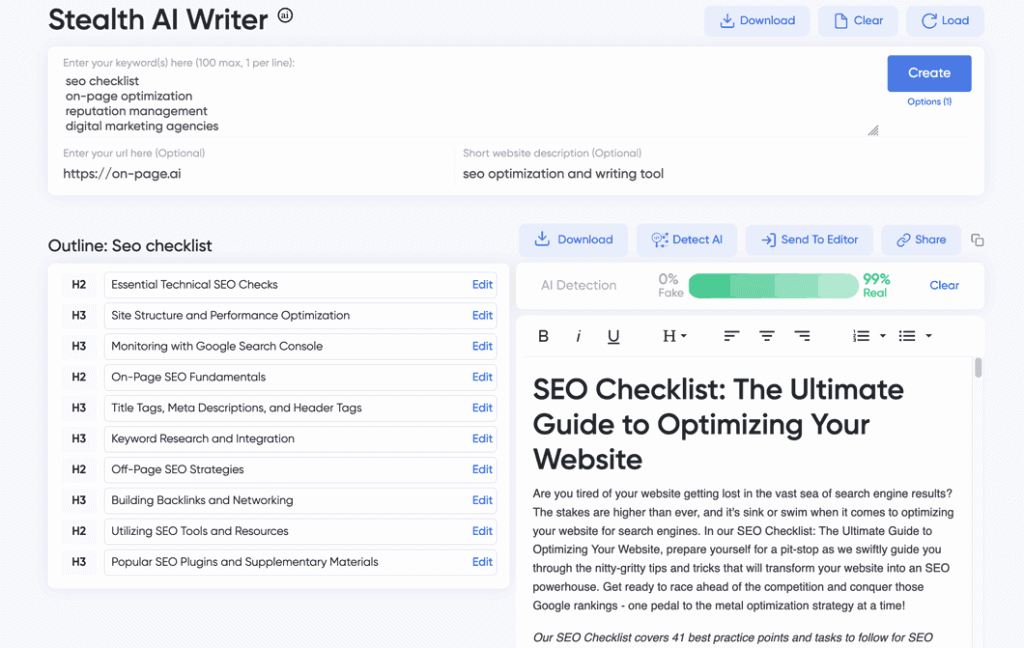
Moreover, AI-assisted writing also presents an opportunity for professionals to focus more on the creative aspects of their craft: storytelling, character development, and plot construction. By embracing the automation side of things through these valuable tools, they can spend more time on higher-level ideas that engage readers on different levels.
As a freelance writer who has used several writing software tools for well over five years, I have found that advanced software like On-Page.ai augments my creativity instead of doing away with it entirely. I usually use On-Page.ai‘s keyword selection feature to find new angles from which I could approach a particular story or topic; this often leads me down paths I would not have explored otherwise. Instead of hindering my creativity as some may initially believe, the AI-assisted writing enabled me to fine-tune my craft and ensures I deliver higher-quality work.
Additionally, the rise of AI in creative content creation could lead to more job openings for professionals working on editing and curating rather than on creative writing. The need to polish and refine content created by AI machines falls heavily on the job descriptions of editors who can add tone, style, voice or even just a human touch that ultimately improves authenticity and establishes connections with audiences. Blogs, whitepapers, reports, and e-books are some examples of pieces where content curation has become essential. The absence of human input often results in stale narratives, flat characters or impersonal universes that lack depth and nuance—vital elements of engaging storytelling.
However, it is essential to note that such technology must be seen as a tool that assists writers in their output instead of a replacement for them entirely. Like professional chefs who use technology like sous vide machines to help them cook food, writers should view AI-powered tools like On-Page.ai Editor as advanced resources that aid them instead of replacing them entirely. Indeed, the creativity and emotional depth that only humans can bring into content cannot be replicated by an AI machine.
Ethical Considerations and Potential Drawbacks

As with any new technology, there is always the potential for ethical considerations regarding AI-powered writing software tools. From issues surrounding copyright infringement claims to plagiarism concerns, safeguarding and monitoring the quality of automated content must be at the forefront of discussions about the impact of AI technologies on writing quality.
One potential challenge is regarding authorship and attribution. While there are specific situations when it’s perfectly legitimate to generate content without sourcing it back to a human writer – such as product descriptions or SEO-focused pages – many other pieces can create confusion when not attributed correctly.
It’s like a DJ playing music from different artists: sometimes, the experience feels flat and disjointed because of the lack of coherence in the sound; similarly, attributing bylines wrongly to writing machines may make it hard for readers to identify content that comes from human sources. If you’re producing branded content or other forms of sponsored content, these are especially essential when audiences value the transparency and authenticity required to build trust.
Another concern surrounding AI-generated content is the potential disdain for authentic storytelling. With technological advancements continually undertaken, readers may someday read written pieces that are void of humanity’s essence and that ultimately fall short of evoking resonant emotions or sparking empathy. Conversations around AI writing should always take into account both protective measures against unethical practices and thoughtful considerations for preserving storytelling qualities that make genuine connections with readers.
However, despite the remarkable progress made via AI writing technology, there remains skepticism about its future inception – considering AI cannot always accurately capture tone, authorial voice, or a particular cadence – all factors found in effective content creation. When creating material that has an emotional impact on readers’ lives, there are obvious drawbacks to using solely automated language generators which communicate messages to readers lacking creative imagination.
.
Originality and Authenticity Challenges
One of the most significant challenges related to AI in writing is ensuring that the content produced is original and authentic. While AI is capable of generating text that closely mimics human writing, there are concerns that it may lack the nuance and creativity necessary to produce truly unique content.
For instance, some AI tools use machine learning algorithms to analyze existing content on a particular topic and generate new content based on patterns found within that data. While this approach can produce text that appears to be well researched and informative, it may not be entirely original if it’s merely regurgitating facts or quotes from other sources.
Additionally, there’s a risk that AI-generated content could be plagiarized without realizing it, as some algorithms may pull too heavily from existing material. This could have serious consequences for writers and businesses who inadvertently use reproduced material, as it would violate fair use laws and could even result in legal action.
Some argue that AI-generated content will never truly be authentic since it lacks the emotional depth and creativity of human writing. They believe that machines cannot fully emulate the human experience, nor can they capture nuances such as tone and style like humans do. However, others contend that over time, AI technology will become more advanced, allowing it to replicate human writing styles more accurately.
One analogy often made is that AI-generated content is like a photocopy: no matter how many copies you make, each one will always be slightly different from the original document. In other words, while machines can create an approximation of human writing style, they cannot truly replicate its complexity or authenticity.
To address these concerns, some companies have implemented measures such as plagiarism checkers to ensure their generated content is entirely original. Others are experimenting with programs that allow human editors to work alongside AI, checking for quality control and ensuring the text is unique and authentic.
However, there are still concerns that even with these measures in place, AI-generated content may not match the level of originality and authenticity that human writers can produce. Additionally, there’s always the question of bias; since machines learn from existing content, they may perpetuate harmful stereotypes or preconceptions found within that data.
While there are undoubtedly challenges related to AI-generated content, it’s essential to remember that these technologies can be powerful tools for writers seeking to streamline their processes and increase efficiency. With that said, it’s crucial to use the right tool for the job – and On-Page.ai is a great choice for anyone who wants to create impactful, original content that ranks highly on search engines while avoiding plagiarism. The tool is designed to help writers generate unique content with minimal effort while ensuring its quality through advanced machine learning algorithms and natural language processing capabilities. Register with On-Page.ai today to experience the future of AI-assisted writing.
Responses to Common Questions
What potential ethical concerns arise with the use of AI in writing, such as plagiarism or bias?
AI technology offers a lot of benefits to the writing industry, such as improved content quality and faster completion times. However, it also raises ethical concerns.
One major concern is plagiarism. AI can easily crawl websites and databases to generate content similar to existing work without proper attribution. This poses a significant risk to the integrity of written works and intellectual property rights. According to a study by Turnitin, an educational technology company, 9% of academic papers were found to contain unoriginal content in 2019.
Another issue with AI in writing is bias. Because AI models are only as unbiased as the data used to train them, they can perpetuate societal prejudices and discrimination. A study by the National Institute of Standards and Technology found that facial recognition systems had higher error rates for people of color, highlighting an issue with biased data.
Moreover, automated decision-making through AI writing tools may result in negative outcomes that could be difficult to reverse or mitigate. For instance, if an AI writer wrongly diagnoses someone’s medical condition based on biased input data, it could put patient safety at risk.
Therefore, it’s crucial for developers to address these issues by implementing transparency requirements for AI-based writing systems and regularly auditing their performance against ethical standards. Also, users should exercise caution when using such tools and employ them in conjunction with human creativity and judgment. This will ensure that we maximize the benefits of AI while reducing its potential negative impacts on society as a whole.
Will AI generated writing eventually become indistinguishable from that created by humans?
In the near future, we can expect that AI generated writing will become much harder to distinguish from content created by humans. With advancements in natural language processing (NLP), machine learning algorithms, and deep learning techniques, AI writing is now becoming more sophisticated.
Recently, OpenAI’s GPT-3 has demonstrated significant progress in generating human-like text, giving a few people the impression that they were reading articles or essays written by humans. According to OpenAI research, GPT-3 can perform a range of tasks such as translation, summarization, and even composing fictional stories with little input.
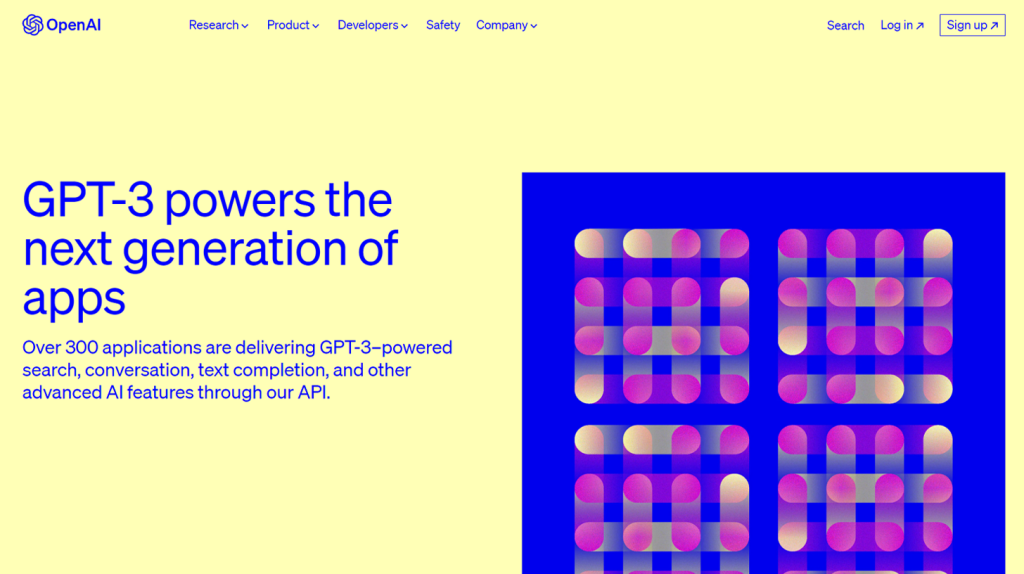
However, it’s important to note that AI still lacks the creativity and originality that we see in human-generated writing. A program may be able to produce a grammatically correct sentence, but it cannot generate content based on emotions or life experiences.
Furthermore, although AI may seem like competition for the writing profession at first glance, we must consider how this technology can assist professionals by generating basic outlines or keywords for topics. This will enable writers to concentrate on producing higher quality content instead of repetitive tasks.
In conclusion, while there is no doubt that AI-generated writing is on the rise, it will never completely replace human creativity. Whereas machines are designed only to do what is explicitly instructed and limited by its internal algorithmic framework alone – humans have a broader perspective and emotions that give depth to content creation.
How will AI impact the role of human writers and editors in the publishing industry?
The impact of AI on the publishing industry has been a topic of discussion for several years now. It’s no secret that AI has changed the way we consume information, and it’s only a matter of time before it changes how that information is created. But what impact will this have on human writers and editors?
Firstly, we must understand that AI is not here to replace human writers and editors entirely. As much as AI can replicate patterns, analyze data, and create content on its own, it still lacks the essential human touch to make things truly unique and creative. Of course, this doesn’t mean that there won’t be changes within the industry; it means that humans will have more time to focus on innovative ideas and intricate storylines rather than routine tasks.
In recent years, we’ve seen the emergence of AI-powered writing tools such as Grammarly and Hemingway App, which claim to improve writing quality by identifying grammar errors and suggesting better sentence structures. These tools are particularly useful for self-publishing authors who don’t have access to an editor but are also used by publishing houses to increase efficiency during the editing process.
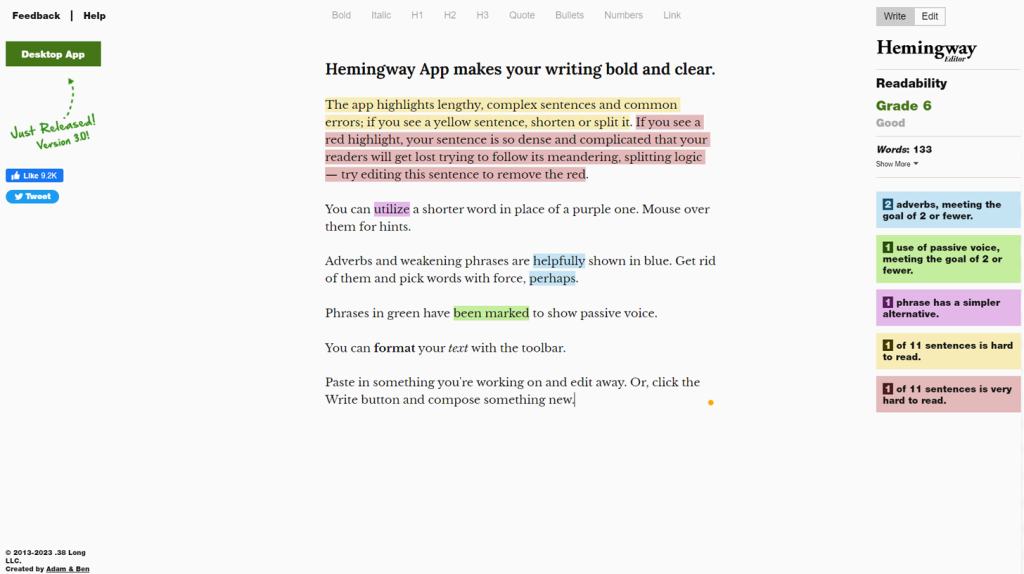
According to a report by McKinsey Global Institute, AI could automate up to 29% of work done by editors and writers within the publishing industry over the next decade. This could lead to an estimated cost savings of $270 billion per year for businesses.
However, with increased efficiency comes new challenges such as job displacement. As AI takes over routine tasks traditionally done by humans, the publishing industry may need to shift towards creating new roles in areas such as data analysis or content strategy.
In conclusion, AI is set to revolutionize the publishing industry in many positive ways but shouldn’t be seen as an imminent threat to human writers or editors’ jobs. Instead, humans should embrace AI’s potential while continuing their pursuit of producing one-of-a-kind stories and exploring untold truths through literature.
What advancements are being made to AI technologies to improve their ability to write creatively?
As we move further into the future, AI technologies are becoming increasingly advanced, and their ability to create content is improving by the day. Creative writing is one area where researchers and developers are actively working to improve AI’s capabilities.
- There have been impressive strides made in this area recently, with some of the most significant advancements being made in Natural Language Processing (NLP) algorithms.
- For instance, OpenAI’s GPT-3 model has garnered widespread attention for its ability to generate highly coherent and creative text that matches human-like standards. The algorithm can create dialogue, poetry, and prose in unique styles and even differentiate between different genres with precision.
- In addition to GPT-3, several other AI models focus on specific writing tasks. For example, there are programs specialized in writing news articles or sports reports that can produce high-quality content faster than a human writer.
- Moreover, AI-powered language enhancement tools like Grammarly and ProWritingAid have dramatically improved their ability to identify errors in grammar, punctuation, and sentence structures while offering suggestions that help writers enhance their style.
A study by Market Research Future shows that there is an anticipated compound annual growth rate of up to 16% in the natural language generation market from now until 2023. With such growth comes more technological advances as more businesses bet on these amazing NLP technologies.
In conclusion, technology is evolving at an unprecedented pace – allowing AI technologies to tackle complex problems previously thought impossible for machines. There is no doubt that these new technologies will revolutionize the creative writing industry over time, providing writers with power tools for automated research assistance and even the generation of entirely new ideas.
How will copyright laws be affected once AI technology is capable of creating original written material?
As AI technology continues to evolve, it is inevitable that copyright laws will be affected. Currently, copyright laws protect original works created by humans. However, once AI technology gains the capability to create original written material that meets the basic requirements of creativity and originality, the issue of copyright ownership becomes blurry. In fact, some suggest that copyright law as we know it may become obsolete.
According to a report by WIPO (World Intellectual Property Organization), there has been a significant increase in patent applications related to AI and machine learning over the past few years. This suggests that companies are investing heavily in AI technology and are likely to continue doing so as the technology progresses. As AI systems become more sophisticated, it is possible that they could create written content that is indistinguishable from human-written work.
While some argue that owners of AI-generated content should have copyright protection, others believe that algorithms cannot be considered authors under current copyright laws. Additionally, determining authorship of AI-generated content can be difficult since multiple parties can be involved in the creation process.
There is no clear solution to this issue at present time, but it’s important for lawmakers and legal experts to start considering these implications now before the full impact of AI on the writing industry becomes more apparent.

